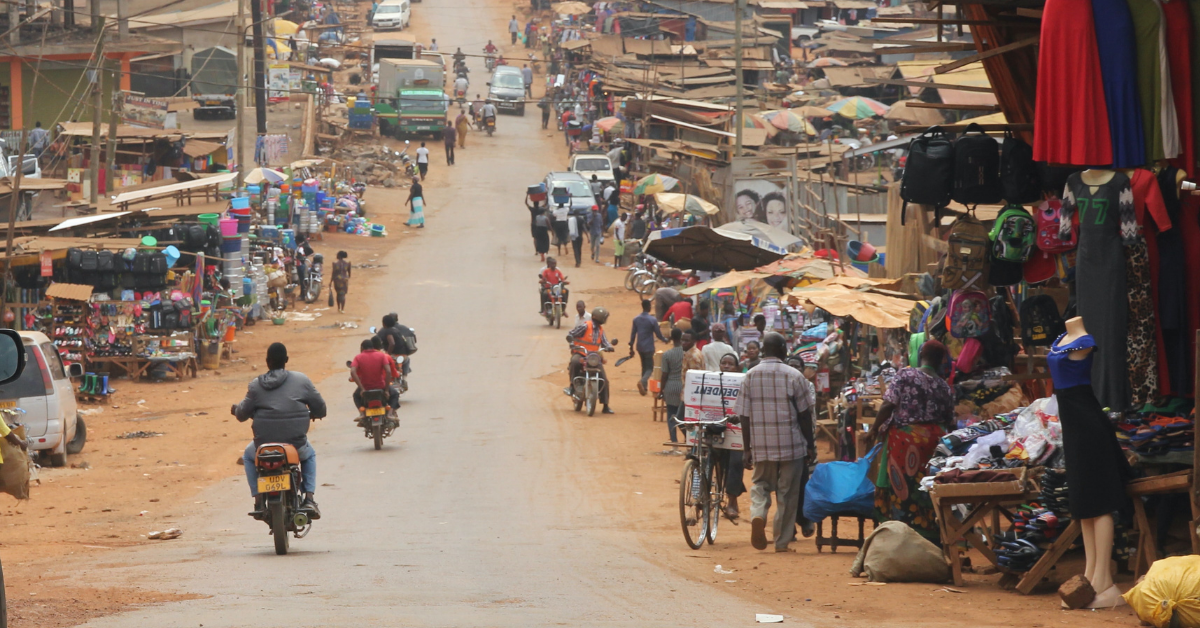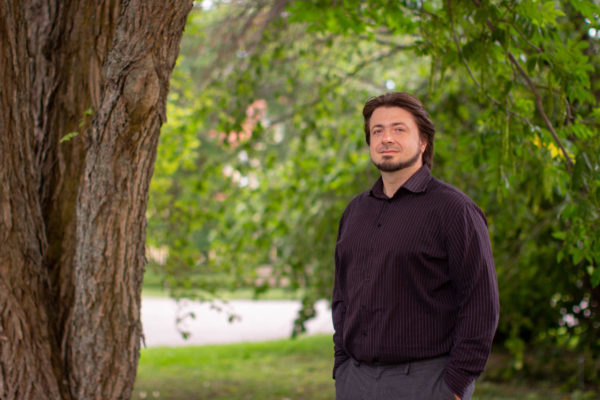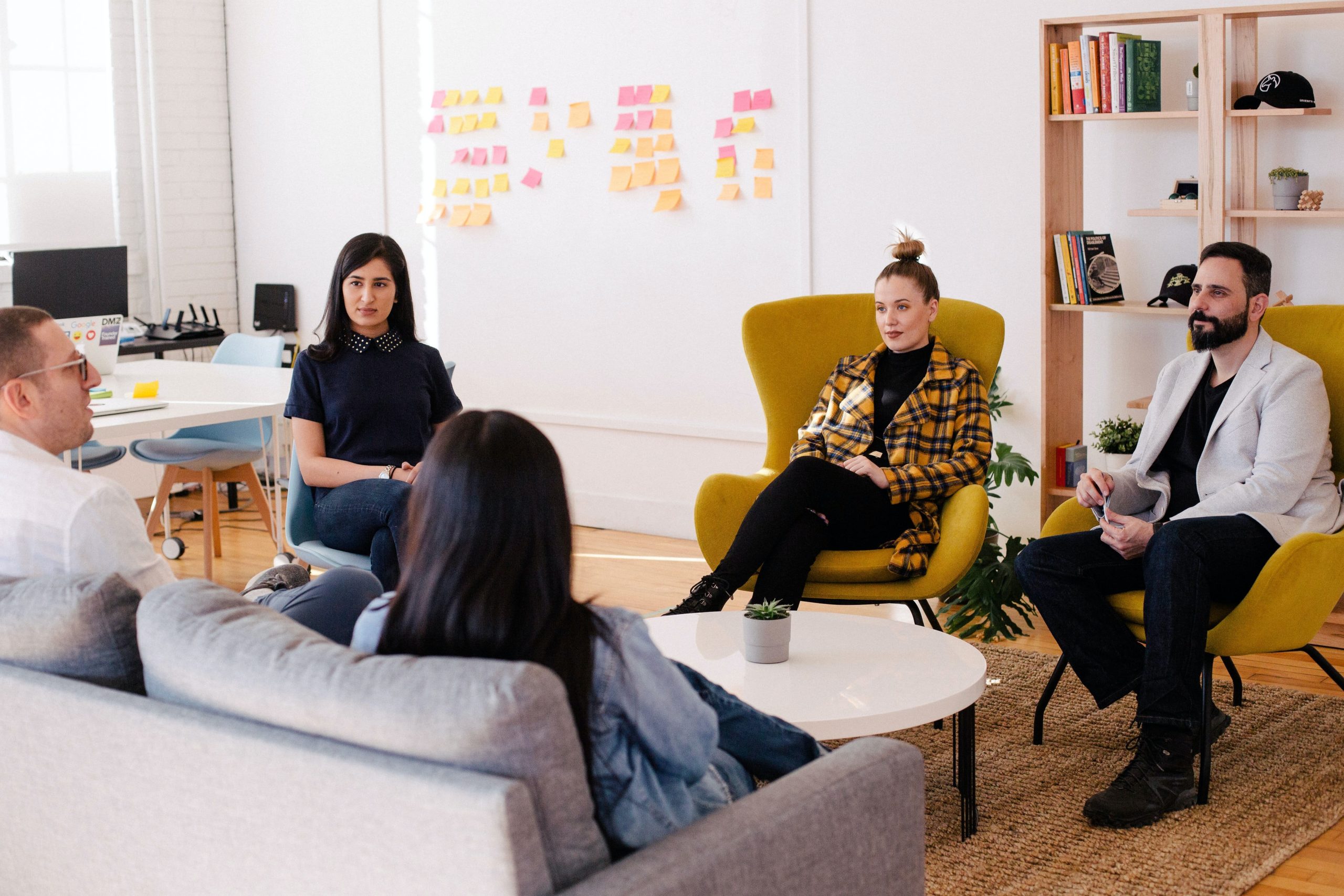
Cristiano Lanzano is a social anthropologist at the Nordic Africa Institute (NAI). Lanzano’s research focuses on mining, natural resources and conservation, and the anthropology of sustainable development. In conversation with SweDev’s Alessandro Giacardi, he describes the current Covid-19 and development challenges through an anthropology lens.
Q: The Covid-19 pandemic has destabilized the world’s balance, worsening the situation of the most fragile countries. With this in mind, what do you think has changed and will change within development studies?
A: Even if we are still too close to the pandemic to evaluate its long-term consequences, two main elements emerged. Firstly, travel restrictions have given more space to researchers based in the Global South to speak for their reality and witness the Covid-19 impacts on their territories. This may open opportunities for a less Eurocentric production of academic knowledge in the field of development, but the final outcomes remain to be seen.
Secondly, the pandemic places issues such as global health, associated with global inequalities back on the agenda. The pandemic highlights the role of science and technology and calls for a truly global approach and for a greater integration between social and natural sciences.

Cristiano Lanzano, Nordic Africa Institute (NAI). Photo: NAI.
Q: You are a social anthropologist focusing on anthropology of development. What does development mean in the context of anthropology and what are you teaching to your students?
A: The relationship between anthropology and development is complex but very stimulating. James Ferguson has provokingly defined development as “the evil twin of anthropology.” Many anthropologists tend to distance themselves from development as a discipline and practice, even if historically we have a lot in common. Especially when western anthropologists conduct research in the Global South, they can often be mistaken for development workers. After all, beside our background, we often share the same interest for certain topics, and networks. When I first did my fieldwork in Senegal, my initial contact was an Italian NGO working there: this shaped the way I looked at reality during fieldwork, even if I tried to be aware of it and develop a critical stance.
Cristiano Lanzano, Senior Researcher at the Nordic Africa Institute said:
“When I approach development and humanitarianism in class, I always suggest students to adopt a suspicious but constructive attitude towards these concepts. Anthropology has the ambition to challenge and problematize ideas that are usually taken for granted, approaching them from different and unusual standpoints. At the same time, we are expected to engage, empirically and empathetically, with those same ideas and practices”
It’s essential for anthropologists to investigate the details of the reality of development workers and beneficiaries, focusing on the micro-dynamics through our qualitative – but rigorous, as Jean-Pierre Olivier de Sardan has emphasized – research methods, rather than limiting ourselves to discursive criticism.
Q: Land is central in many development debates concerning Africa. It is viewed as a sacred element, but also as an economic asset. How can researchers shape policy-making when it comes to coping with poverty, land and heritage protection in Sub-Saharan countries?
A: Land carries multiple meanings. In many agrarian societies, for example, in several West African contexts where I conducted research, there are spiritual values attributed to land, which is often central for the definition of the identity of social groups. At the same time, in certain situations – for example when pressure on land increases, or when financial investments arrive – the emphasis can shift to individual ownership, property rights and land as a source of profit.
This dualism has always been present, and it partly reflects different power dynamics. At a large scale, global capitalism engages in a strong (and private-driven) extraction process, while some actors such as international organizations promote conservation. At the local scale, several forms of political and economic negotiations take place at the community level, for example with local chiefs negotiating the value of land with migrants, people establishing monetary agreements on the use of land, and different actors negotiating informally their access to natural resources.
Q: The extraction of African resources is a global challenge. Resource exploitation is often associated with cheap labour, local conflicts, and fragile institutions in the Sub-Saharan region. Based on your expertise, which is the role played by both institutions and the private sector?
A: If we look back at the history of natural resource extraction in most African countries, we see a continuous shift back and forth from private to public and state actors. At the beginning of colonization, European private groups started large-scale extraction, later taken over by colonial powers. Even after decolonization, this swing continued: after a first phase of greater involvement of the newly independent states, the 1980s saw the rise of neoliberalism, where the state seemed to withdraw in favour of private actors. Many scholars argue that the state did not really withdraw, but rather reconfigured its power by delegating more control to the private sector. Recently we experienced a tendency labelled as “resource nationalism”, where the governments – most notably in Tanzania, but in other countries too – is advocating to renegotiate agreements with international private companies.
Whilst the power of private actors continues being a significant element in resource governance, on the other side, activists look back critically at the history of extraction as another form of neo-colonialism appropriation. The African public opinion is claiming back its resources. On a higher and institutional level, such as the African Union’s “Mining Vision for Africa” there is the ambitious willingness to keep part of the resource value chain in the African continent rebuilding the Africa industry policy and recreating a different economic relationship with the rest of the world.
Anthropology wants to go beyond the idea of the state as a single actor when it comes to resource governance. States and companies are themselves composite entities, with people and agencies responding to different logics and enacting different strategies. Furthermore, other political actors – such as traditional chiefs, informal actors, unions and other organizations emerging from the informal sector – are also crucial. Even state agencies and private actors realize that the more the focus is on the local scale, the greater is the effectiveness in mediating between their interests and pushing forward their agendas. Therefore, much more than what we usually recognize happens outside – or in the interstices – of the dualism between, on the one hand, the state and, on the other hand, private enterprises and multinationals.
Q: SweDev aims to connect development researchers across Sweden to strengthen collaboration with practitioners. Which are your three most important research outcomes and messages you would share with your colleagues and practitioners?
A: When we analyze contexts where resource wealth coexists with poverty or violence, we should avoid implying that the presence of minerals and other resources automatically and inevitably leads to conflicts and instability. Even if there can be links between resource extraction and violence, there is always a political-economic and historical context that mediates that relation. Recently, in a NAI (Nordic Africa Institute) policy note, we tried to nuance the analysis of the links between gold extraction and violence and insecurity in Burkina Faso.
Secondly, in studying the informal sector in Africa, we cannot forget power relations. There are significant inequalities, and some will gain while others will not from formalization, which is never really a neutral process. Designing effective schemes to protect and formalize workers also depends on how accurately we understand the complex functioning of the informal economy.
The third and last point is methodological. The hegemony of quantitative evaluation tools, and of evidence-based policy, is growing within the development sector, as demonstrated by the 2019 Nobel prize in economics to Banerjee, Duflo, and Kremer. While it responds to the need to verify the effectiveness of development interventions, this tendency also risks marginalizing certain approaches or obscuring important debates within development studies.
Finally, when it comes to methodology Cristiano said:
“It is very important to recognize the limits of certain evaluation tools, and to argue for an integration of quantitative and qualitative methods. Development is a complex phenomenon, and its understanding requires the collaboration of different disciplines and methodologies”.
Written by Cristiano Lanzano, Senior Researcher at the Nordic Africa Institute and Alessandro Giacardi, Communication and Research Intern at Stockholm Environment Institute (SEI) for the Development and Aid Policy Team and SweDev. Edits by Ylva Rylander and Alice Castensson.





Recent Comments